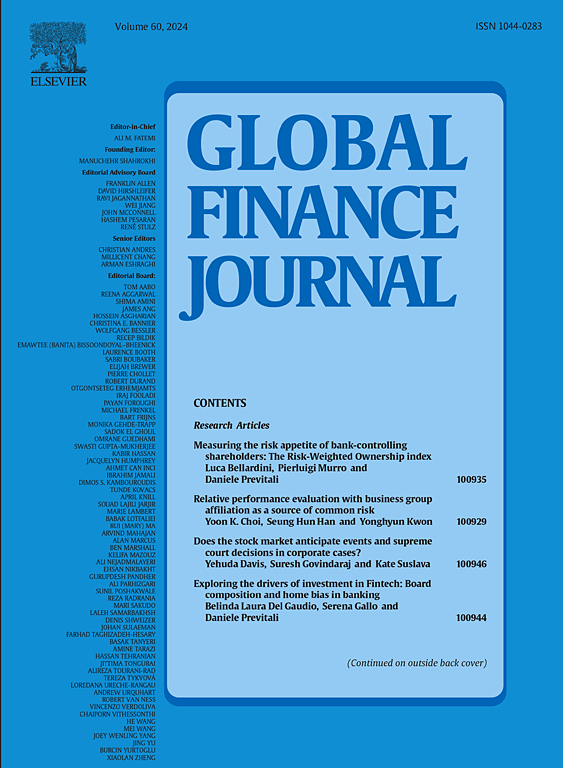Financial inclusion, inequality, and retirement trends among older workers
IF 5.5
2区 经济学
Q1 BUSINESS, FINANCE
引用次数: 0
Abstract
The study develops a financial inclusion index comprising three dimensions: usage, barriers, and access to financial resources. It employs a two-stage Principal Component Analysis to derive each dimension's weight. This index helps assess the impact of financial inclusion on various factors like ethnic groups, minorities, human capital, retirement, wealth outcomes, and mental well-being. The research uncovers new psychological and sociological impacts of accessing financial products. Households in counties with higher financial inclusion scores are likelier to have increased income, home ownership, and real estate wealth. They are also more prone to generating intergenerational wealth and breaking free from poverty. Financial inclusion contributes to long-term enhancements in wealth and retirement outcomes, benefiting minority groups and genders while also enhancing family and work resilience, reducing stress, and alleviating drug-related issues. The findings carry significant policy implications, such as reducing the wealth gap, improving retirement security, and enhancing socioeconomic results.
金融普惠、不平等和老年工人的退休趋势
该研究开发了一个金融包容性指数,包括三个维度:使用情况、障碍和获得金融资源的途径。它采用两阶段主成分分析来推导每个维度的权重。该指数有助于评估普惠金融对种族群体、少数民族、人力资本、退休、财富结果和心理健康等各种因素的影响。该研究揭示了获取金融产品的新的心理和社会学影响。金融包容性得分较高的县的家庭更有可能增加收入、住房所有权和房地产财富。他们也更容易创造代际财富,摆脱贫困。普惠金融有助于长期改善财富和退休结果,使少数群体和性别受益,同时还能增强家庭和工作韧性,减轻压力,缓解与毒品有关的问题。研究结果具有重要的政策意义,如缩小贫富差距、改善退休保障和提高社会经济效益。
本文章由计算机程序翻译,如有差异,请以英文原文为准。
求助全文
约1分钟内获得全文
求助全文
来源期刊

Global Finance Journal
BUSINESS, FINANCE-
CiteScore
7.30
自引率
13.50%
发文量
106
审稿时长
53 days
期刊介绍:
Global Finance Journal provides a forum for the exchange of ideas and techniques among academicians and practitioners and, thereby, advances applied research in global financial management. Global Finance Journal publishes original, creative, scholarly research that integrates theory and practice and addresses a readership in both business and academia. Articles reflecting pragmatic research are sought in areas such as financial management, investment, banking and financial services, accounting, and taxation. Global Finance Journal welcomes contributions from scholars in both the business and academic community and encourages collaborative research from this broad base worldwide.
 求助内容:
求助内容: 应助结果提醒方式:
应助结果提醒方式:


